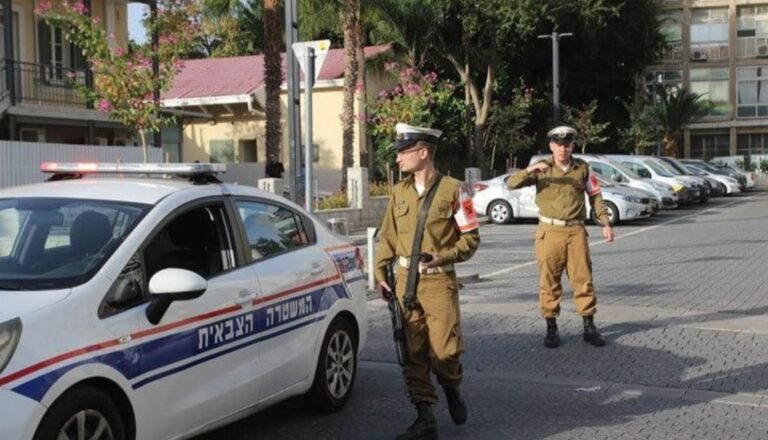 By now it should be clear to all that for Prime Minister Binyamin Netanyahu the primary objective is to form a coalition. Towards achieving this goal he will settle and push aside aspirations of a ‘dream team’ and simply put, take what he gets. These are the rules of play in Israeli politics, and while it often results in a government perceived by voters as a betrayal, the prime minister’s main concern is a stable coalition, or as stable as the situation permits to permit him to remain in office.
By now it should be clear to all that for Prime Minister Binyamin Netanyahu the primary objective is to form a coalition. Towards achieving this goal he will settle and push aside aspirations of a ‘dream team’ and simply put, take what he gets. These are the rules of play in Israeli politics, and while it often results in a government perceived by voters as a betrayal, the prime minister’s main concern is a stable coalition, or as stable as the situation permits to permit him to remain in office.
With the doors closing over the sharing the burden with Shas and Yahadut Hatorah, both announcing before Purim that they cannot accept the Kandel sharing the burden plan, Mr. Netanyahu is compelled to take his case elsewhere. Netanyahu is compelled to implement a new reality vis-à-vis drafting bnei Torah as per the ruling of the Supreme Court in the summer of 2012. He is aware that the status quo that existed to date can no longer exist as it was and a new formula for drafting chareidim is a must.
According to a Maariv report, the prime minister has been negotiating with Bayit Yehudi, primarily with Uri Ariel and his colleagues and progress is reported. The main bone of contention centers around the sharing the burden issue, more specifically the age of recruits, but they sides are signaling optimism towards reaching agreement. Such a deal will almost for certain prohibit the chareidi parties from entering the next government. It is difficult to envision a situation in which a sharing the burden formula acceptable to Bayit Yehudi and Yesh Atid can also be acceptable to the Moetzas Gedolei Hatorah of the chareidi parties.
It appears the age an avreich will be compelled to enter military service will be 21, down from 24 as proposed by Likud/Beitenu and up from 18 as first suggested by Bayit Yehudi. Maariv quotes Bayit Yehudi officials as saying their voice is also the voice representing Yesh Atid and its 19 seats.
Bayit Yehudi officials explain their opposition to an induction age of 24 is based on a number of factors including;
1. The candidate is too old to become a combat soldier.
2. The cost to the military is five times that of a younger inductee (perhaps based on the assumption he will be married)
3. The length of one’s service will be too insignificant.
4. The age of 24 will not stand up to an appeal to the High Court of Justice which ordered the Defense Ministry to draft chareidim.
It is pointed out that even if the enlistment age is set at 21, this means service will most likely be limited to two years instead of three years as non-chareidi men serve. Another exception to the three-year service rule for male soldiers is the hesder students, whose military time is limited to 18 months. The reality for hesder talmidim may also change in the new share the burden reality and this may spark another outcry, this time from rabbonim in the dati leumi community.
Bayit Yehudi officials express optimism, explaining finally, Likud/Beitenu has begun negotiating instead of concentrating on breaking the alliance between the party and Yesh Atid.
Despite all the optimism there is still a major sticking point. Likud/Beitenu proposes setting IDF draft goals and once those goals are achieved, permitting the remainder of the chareidi tzibur to learn, or at least not draft them. Bayit Yehudi however insists on setting a ceiling, a maximum number of chareidim permitted to receive draft deferments annually and the remainder would either serve in the IDF or an approved national service. Before Purim Bayit Yehudi announced that instead of the maximum number of avreichim permitted to continue learning Torah annually of 400, it is now willing to accept 1,500.
Showing signs of good will towards the two parties, Likud/Beitenu is also signaling that despite Shas’ desires, even if the chareidi party enters the coalition it will not receive the Interior Ministry which it has controlled for a number of years. This is a clear sign that Likud/Beitenu negotiators are placing their hopes for a coalition in the hands of Naftali Bennett and Yair Lapid and not Shas and Yahadut Hatorah. It appears the military service issue has closed negotiating doors with the chareidim and all efforts are now focused on a coalition that would include Likud/Beitenu, The Movement, Bayit Yehudi, Yesh Aid and Kadima. This would give the prime minister a majority of 70 in the 120-seat Knesset.
Likud/Beitenu also announced before elections that it would not place the Housing Ministry in Shas’ hands in the next government, another blow to Shas and aspirations to enter the coalition.
(YWN – Israel Desk, Jerusalem)











10 Responses
The only winners will be the Palestinians and perhaps the Israeli left.
The Palestinians will win by getting seriously weakened Israeli army, with perhaps 5-10% of new recruits being people who seriously don’t want to be there and whose loyalty and willingness to follow orders is suspect.
If the government penalizes individuals and yeshivos who refuse to cooperate with conscription, the percentage of hareidim refusing to cooperate will soar, since once some frum kids are being thrown in jail, no one will want to appear to be collaborating. Even if no one is penalized beyond loss of yeshiva subsidies, the army will have trouble treating hareidi conscripts in a way that approaches equality, generating very serve resentment. In the future, it is possible that rolled up diapers will be replaced by “toys” acquired in army service – not a good omen for the medinah’s survival.
The “Right” will be seriously weakened. After a generation of right wing candidates dominating Israeli politics (and even the “center” are all right-wing drop outs such as Sharon and Livni), the Hareidim will no longer be interesting in an alliance with the nationalists, and will gravitate towards alliance with the “left” with whom they share an economic philosophy and opposition to conscription. Instead of hoping to qualify to be the “opposition” (as opposed to being a minor faction), Labor will be able to again dream of winning, supported by a coaltion that will include the Hareidim and the Arabs. If the government arrests frum “refusniks”, the Hareidim and Arabs will be forming what will be a 30 seat anti-zionist block in the kenesset, which will be highly destabilizing for the medinah. Even under the best conditions, if the Hareidi adopt Labor’s limited support for settlements it will mean that Bayit Yehudi may have sacrifised much of its West Bank base in return for adoption of anti-hareidi policies that hardly help them.
Why is it that only people born into the Chareidi Tzibur get to get a deferment? If I am Modern Orthodox, but also want to learn all day, shouldn’t I be able to get that same choice?
#2 You should demand that choice..
Full-time Talmudic learning is available for those outside of the Charedi camp also. Talmidim in Mercaz Harav, Shuve Chevron and other Chardal yeshiva learn for an extensive time without military conscription.
There’s a reason why chareidi parties aren’t getting the votes expected from chareidi growth. Chareidim are tired of religious parties that act like Obama in payos. I want to see the ‘Lakewood Yated’ party: chareidi but also pro-capitalism and against giving in to Palestinians.
akuperma sounds like he’s making a big chiddush but we remember what Shas did during Oslo and how Sharon turned to the chareidi parties in order to implement the Gush Katif withdrawal after the NRP resigned.
zachweiz: because with the exception of Moshe Feiglin, modern orthodox Israelis have bought the line that it is OK to have the state force you to do what it wants instead of allowing you to do what is best for you and your family.
#4- But this will be more lasting. Remember that in matters of economics, the Hareidim are natural allies of the Socialists and the Arabs. Also the Arabs tend to be social conservatives as well. By making conscription an issue, the Hareidim will also find themselves in the same camp as the “left” and the Arabs. Also, Labor isn’t opposed to all settlements, meaning they can decide that the Hareidi settlements (such as Beitar) can stay.
Attacking the viability of Israeli yeshivos is a red line, and it will be hard for the “right” to correct the damage to their relationship with the Hareidi parties. This could result in Labor beng restored to a position of being able to serious contest elections. And it could even result in (unbelievability), a Hareidi (e.g. Shas, e.g. Deri) being a serious canddidate for Prime Minister since the key to winning elections in Israel is to be the biggest part in the “center”, which if the Hareidim keep growing could be the Hareidi (who got 19 seats in this election, and if the Likud–Bayit Yehudi-Yesh Atid coalition moves to the right on economic issues, will alienate many of the Likud working class supporters whose second choice would be Shas. Furthermore, as more and more Hareidim work as part of the “official” economy, which is happening as it is, regardless of what anti-hareidi propagandists say, they will become much more “hutzpahdik” in making demands on the government.
It will make for interesting politics, with many unexpected results.
Meretz is the sister party of Labor. You really think they will get along with chareidim? They are even more anti-chareidi than Lapid!
zachweix,
zionflag is correct. In addition, about 20% of Israelis (almost double the entirety of the chareidi deferrments in real numbers) are granted deferrments for a whole variety of reasons. Many (roughly 7%) simply just leave the country for a few years to avoid conscription. To me, the most hypocitical are the deferments granted for the pursuit of certain secular studies. The state has made the “value” choice, for example, that pursuit of legal studies is worthy of deferrment. I wish some “share the burden” advocate would explain to me how that is of any greater merit (in an allegedly “Jewish” state) than the pursuit of Torah?
ari-free:
Your analysis as to the “reason why chareidi parties aren’t getting the votes expected” is not only absurdly simplistic but also demonstrably WRONG. In fact, the chareidi bloc gets MORE votes than one would expect. Chareidim represent 9-10% of the Israeli population yet captured 14% of the vote (Shas and UTJ) in the last election. That alone is 40-55% MORE votes than the chareidi population. When one factors out of those population statistics chareidim that are “chardal” (who voted HaBayit HaYehudi)and the sizeable portion of Chareidim that do not vote AT ALL, 14% of the vote may be as much as DOUBLE (more?) the number of just the chareidi votes. Clearly, many times more non-chareidim are voting for the chareidi parties than the other way around.
Okay, to clear things up, I wasn’t saying that I am Israeli, but I just thought that only Chareidi’s get the choice to defer. (I do get the choice to not join the army, but I am still learning in Israel because I am only American.)
I never realized that people outside the Chareidi Tzibbur were able to defer
To TorasMosheEmess:
Just to explain something, the only 100% Chareidi party is UTJ. Shas gets a lot of their votes from Dati Leumi Sefardi’s because it is a Sefardi party and has the backing of Rav Ovadiah Yosef.